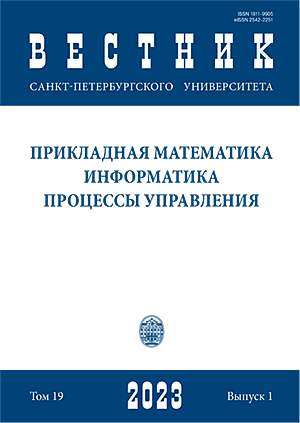The maximum entropy principle in search theory
DOI:
https://doi.org/10.21638/11701/spbu10.2023.103Abstract
The paper considers the relationship between search theory and information theory. The traditional problem of search theory is to develop a search plan for a physical object in the sea or on land. The search plan has to develop the distribution of available search resources in such a way that the probability of detection the search object is to be maximum. The optimal solution is traditionally considered as so-called "uniformly optimal search plan", which provides a uniform distribution of the posterior probability of the location of the object as the search is conducted. At the same time, optimality simultaneously according to the criteria of maximum detection probability and equality of a posteriori probability is possible only for the exponential detection function, which is used most often in search theory. For other kinds of detection functions, the optimal solutions according to the specified criteria do not match. In this paper, the approach to this problem is considered on the basis of the maximum entropy principle. For a situation of discrete distribution, it is shown that, within the framework of information theory, the search problem has a simpler solution that does not depend on the kind of the detection function.
Keywords:
information theory, search theory, uniformly optimal search plan, detection function, maximum entropy principle
Downloads
References
Downloads
Published
How to Cite
Issue
Section
License
Articles of "Vestnik of Saint Petersburg University. Applied Mathematics. Computer Science. Control Processes" are open access distributed under the terms of the License Agreement with Saint Petersburg State University, which permits to the authors unrestricted distribution and self-archiving free of charge.





